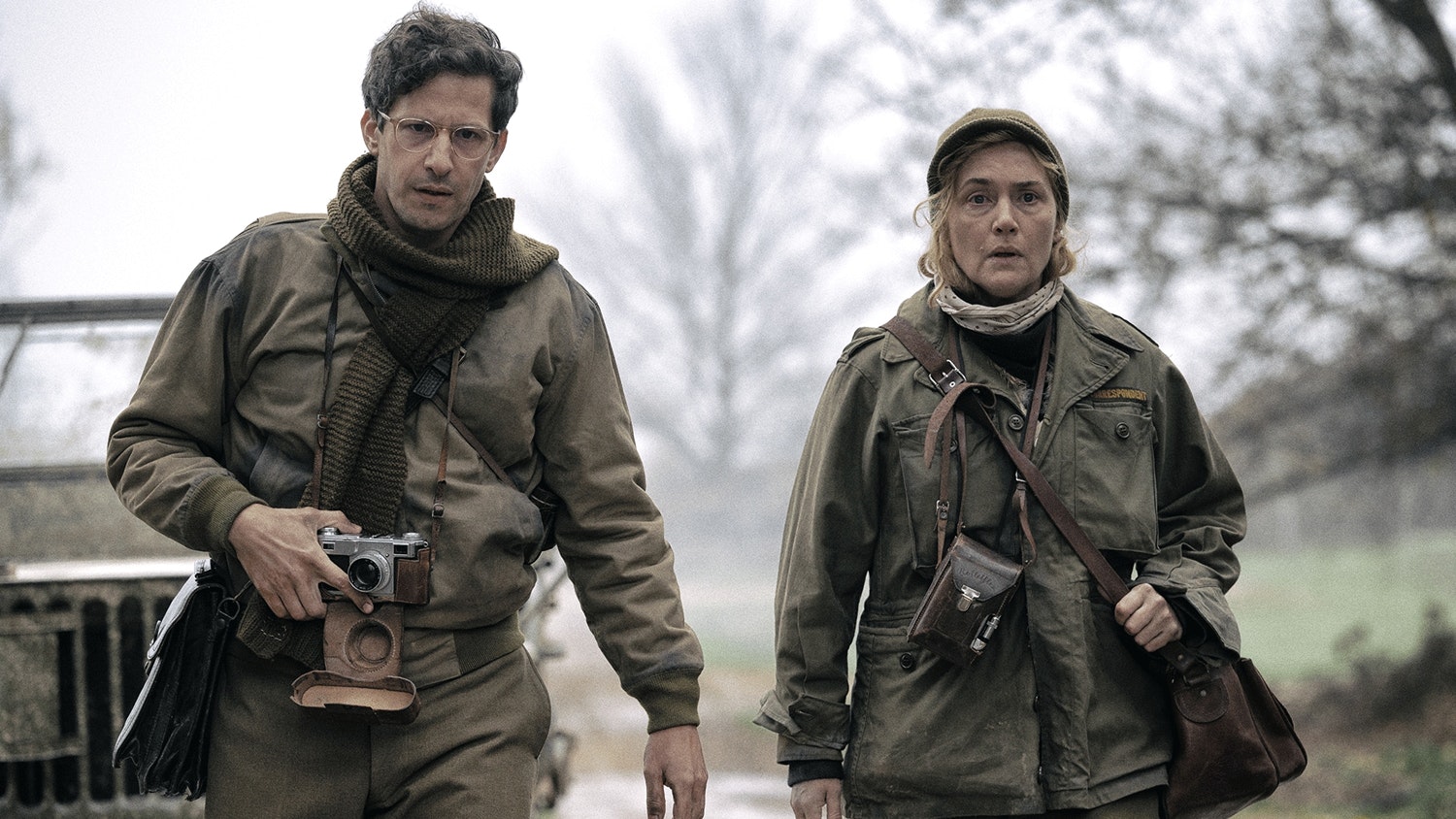Lee (2024)
Lee begins with the sound of a heart beating, fast. We see Kate Winslet’s Lee...

Lee begins with the sound of a heart beating, fast. We see Kate Winslet’s Lee Miller, camera round her neck, finding cover among booms of explosions all around her. It’s clear what director Ellen Kuras is trying to tell us with this opening — that this is a woman who’ll go to any lengths to get the shot. It’s an exhilarating start, even if the rest of the film never quite matches it.

This biopic of the legendary war photographer begins in 1938. Miller is hanging out with friends in France, when she meets eventual husband Roland (Alexander Skarsgård, charming as ever but with a dodgy English accent). They head to London, but as time ticks on and the impact of Hitler’s rise to power moves closer to them, she’s compelled to get involved. After getting a job at Vogue, she travels out to the frontlines, capturing the fight from a unique perspective despite facing constant gender-based barriers to access.
Kate Winslet is formidable as Lee Miller.
Winslet is formidable as Miller. The years she’s spent getting this passion project off the ground are evident in every expression. She’s a powerful presence, grumpy and confident and sexy and vulnerable all at once — but as a character, ultimately feels as enigmatic as it seems the real-life woman was. We see her highs and her lows, but never quite get properly under her skin.
She bounces off Andrea Riseborough’s prim but warm Vogue editor Audrey Withers brilliantly. The gem of the supporting cast, however, is Andy Samberg as fellow photographer David E. Scherman. Stripping back his comedic genius and showing off his dramatic chops, Samberg wonderfully portrays David as a man who will support Lee in all she does, who is maybe even a little bit in love with her, and who, as a Jewish man, is struggling to comprehend the trauma this war is inflicting on his people. The film’s most emotional scene sees David and Lee photograph a pile of bodies, their horror and deep sadness emanating through the screen as they take one single frame — and the recreation of them shooting Miller in Hitler’s bathtub, muddy boots on the bathmat, is spine-tingling.
Lee’s biggest flaw is its commitment to sticking to stale structures — the telling of her life story is framed through the well-trodden trope of an interview decades in the future. Though the focus on photography that dealt with war’s impact on women is obviously important, the way it’s dramatised here can feel clichéd and crow-barred in. But while it may be hampered by convention, this is still a story that demands to be told, and such a strong cast means you can’t help but be invested.
What's Your Reaction?























